[💡11] Coaching and the Future of Work: Less new things, more...
It might just be me being overly critical (read: it’s probably me being overly critical), but I find that whenever the ‘Future of Work’ or the ‘New World of Work’ is discussed, it goes one of two ways: Either the conversation starts and ends with remote/hybrid work arrangements, or the importance of technology, diversity, or sustainability is discussed like someone just invented Skype. If my frustration seems palpable, it's warranted. I'm one more “Remote Work Is The Future” article away from throwing my laptop out the window. Don't worry, I wouldn't, it's an expensive laptop. Seriously though, look at Gartner’s Future of Work Trends for 2023; it is so much more than these frequently debated topics.
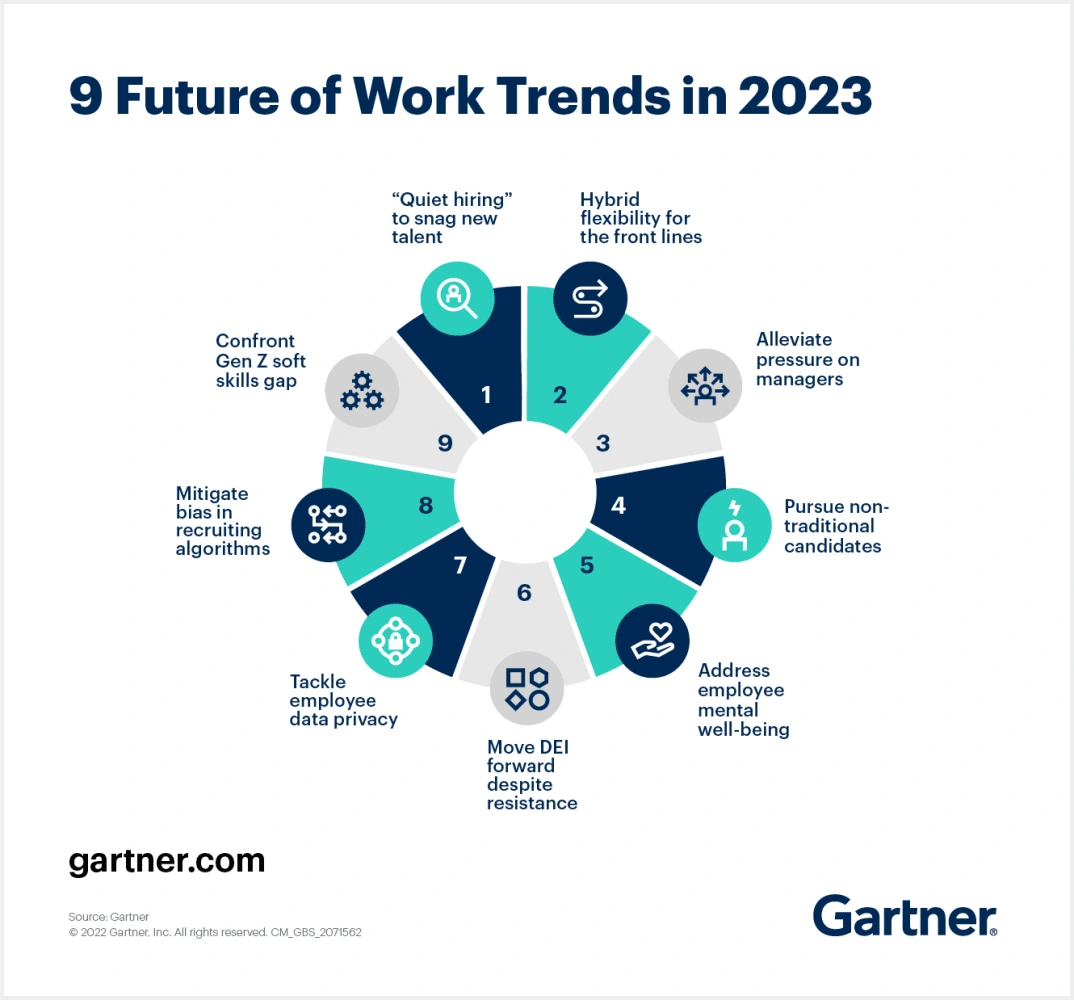
The complexities of the new world of work arise from such fundamental shifts in the structure of labour markets, cultural norms, and political ideologies, that a preoccupation with Future of Work “things” is essentially an implosion in slow motion. Take for example the latest (relatively) new thing, chatGPT. There is so much hysteria around how generative AI like chatGPT will take people’s jobs, how it will cause a collapse of the education sector, and (I kid you not) steal nuclear launch codes 🙄, that it drowns out the pleas for letting go of the old ways of thinking that are holding us back. Indeed, following the chatGPT conversation on LinkedIn reveals that while the tools at our disposal keep increasing exponentially, the way we think about work remains stuck in Fordism – I know, ew right? Here I also see two trends emerging, namely a focus on using generative AI effectively to improve efficiency, or, a focus on creating more effective AI to achieve more efficiency.
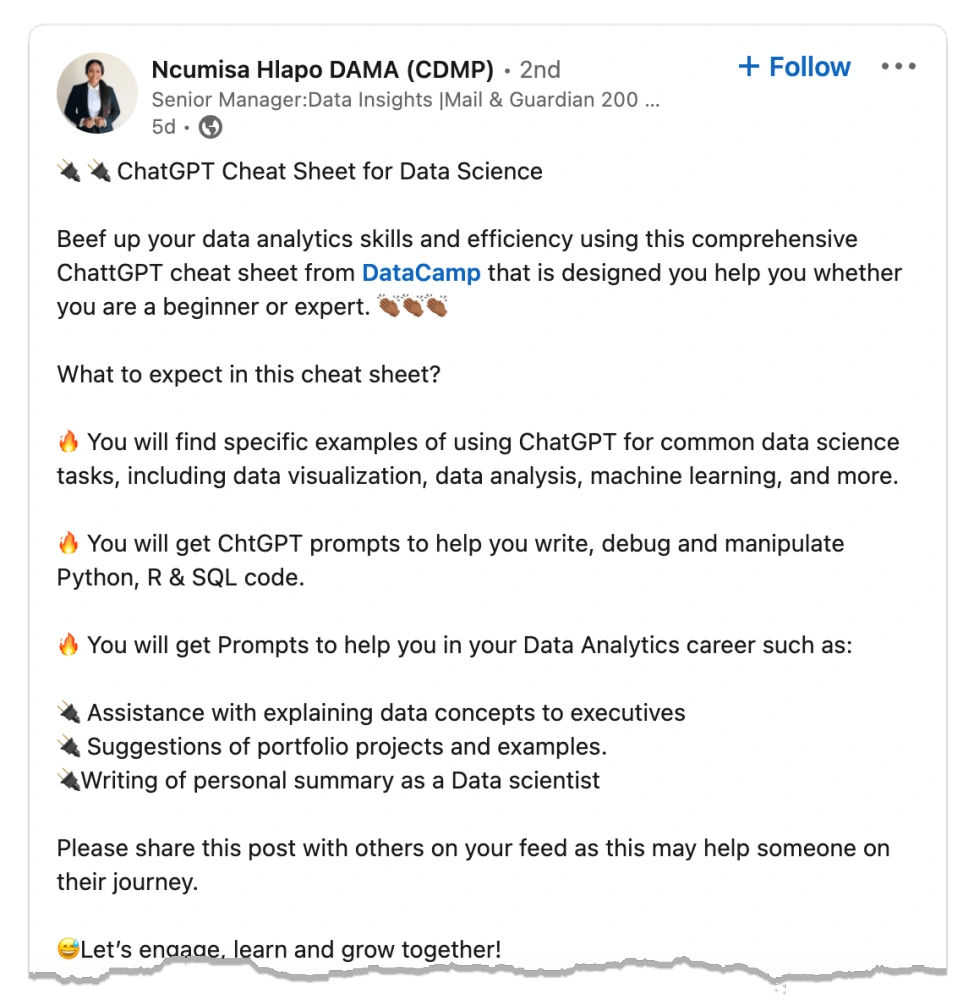
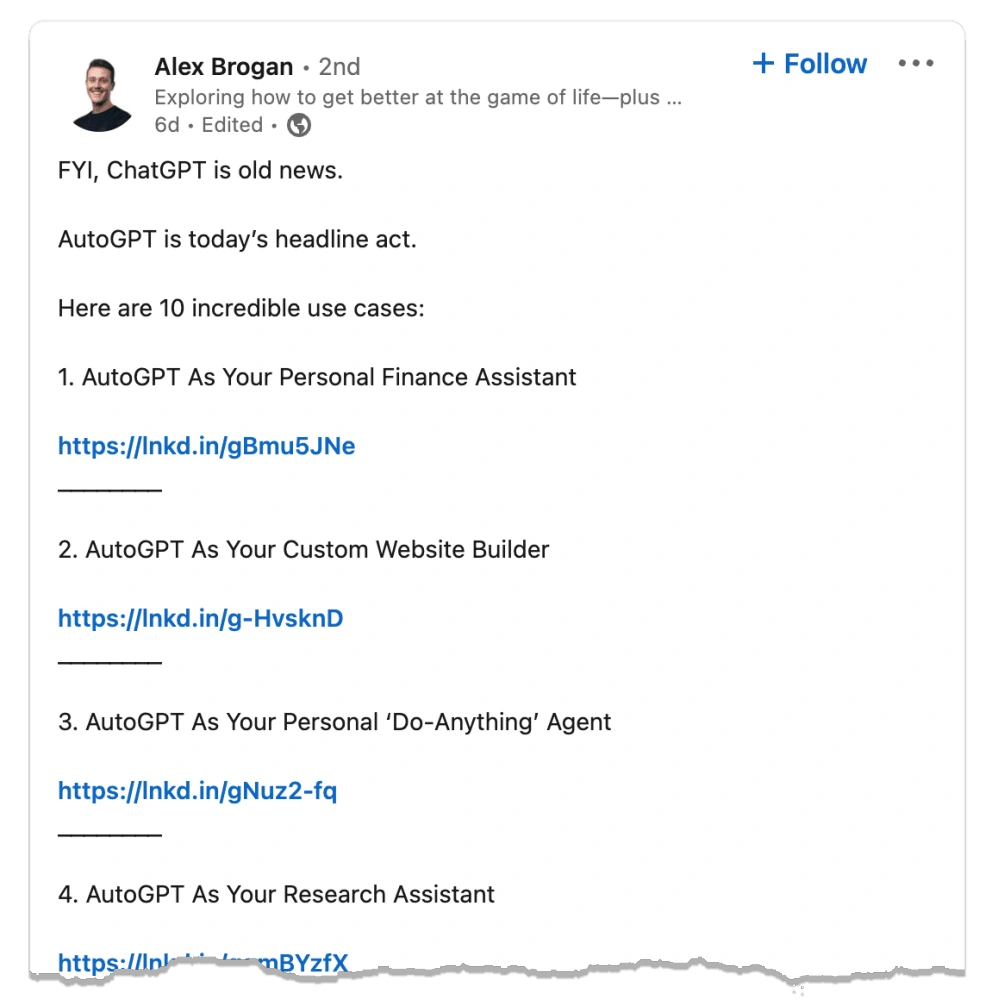
Now, while both of these areas of focus are fine and have their place, of course, what I’m not seeing enough of is people stopping and thinking about how they think about what developments in generative AI, for example, could change how we understand work. In the latest issue of Think by the London Business School, three LBS experts share their more critical views of developments in AI. Prof. Nicos Savva emphasises the need to move beyond the limiting Western power-centric apprehensions of AI to allow genuine progress. Citing the revolution of the creative industry brought about by smart devices, Prof. Ali Aouad highlights how more critical approaches to AI hold the potential for the emergence of entirely new forms of business. Indicating the imperative for multi-disciplinary work to solve complex contemporary problems, Prof. Ioannis Ioannou frames AI as a potent means to overcome limiting information gatekeeping towards accelerated decision-making… get to the point? Ok, sure, almost there.
The point I’ve been trying to make so far is that the most important change in the Future of Work, is the way we think about work. In what may be a not-so-humble opinion, the crux of the matter is this: No quantity of 'Future of Work' initiatives will make a dent in your organisation's capacity for navigating complexity unless those managing the implementation of said initiatives (namely, the managers) evolve how they think about work. Simply put, the Future of Work demands different thinking not different things.
Simply put, the Future of Work demands different thinking not different things.
Let’s park AI/technology for now and look at another example: Let’s say your organisation wants to be progressive and the C-suite decides hybrid working is the new normal. You make sure everyone has laptops and the latest version of Teams loaded, and you even work out nice rotation shifts indicating who will be at the office on which days so that everyone can plan accordingly. So now, what you have is a whole bunch of shiny new things, but the thinking has not (necessarily) changed, and I can tell you what’s going to happen for free – the second something goes wrong, as they do in an imperfect world, hybrid work is going to become the scapegoat for👏every👏thing👏.
Source: The Office US - Product Recall
Decreased productivity? Hybrid work. Conflict? It’s hybrid work! High staff turnover? It’s this darn hybrid work!! If those who manage and make decisions about work aren’t able to adapt their thinking to match the challenges of the world within which organisations operate, you will inevitably revert back to the old ways of working. Take, for example, some of the latest research on organisational culture within hybrid work environments. Michael Arena and his colleagues have identified a new phenomenon they call the Neighbourhood Effect. The Neighbourhood Effect refers to the erosion of social capital in virtual work environments over time, characterised by a decrease in both intra-team (bonding) and inter-team (bridging) connections, leading to more distinct clusters within organisations and increased gaps in social connections. Some early empirical evidence of the proposed effect is graphically depicted below. The diagram represents the erosion of both bonding and bridging social capital after the prolonged virtual work, of approximately 700 employees of a large engineering organisation, nearly 12 months into the pandemic.
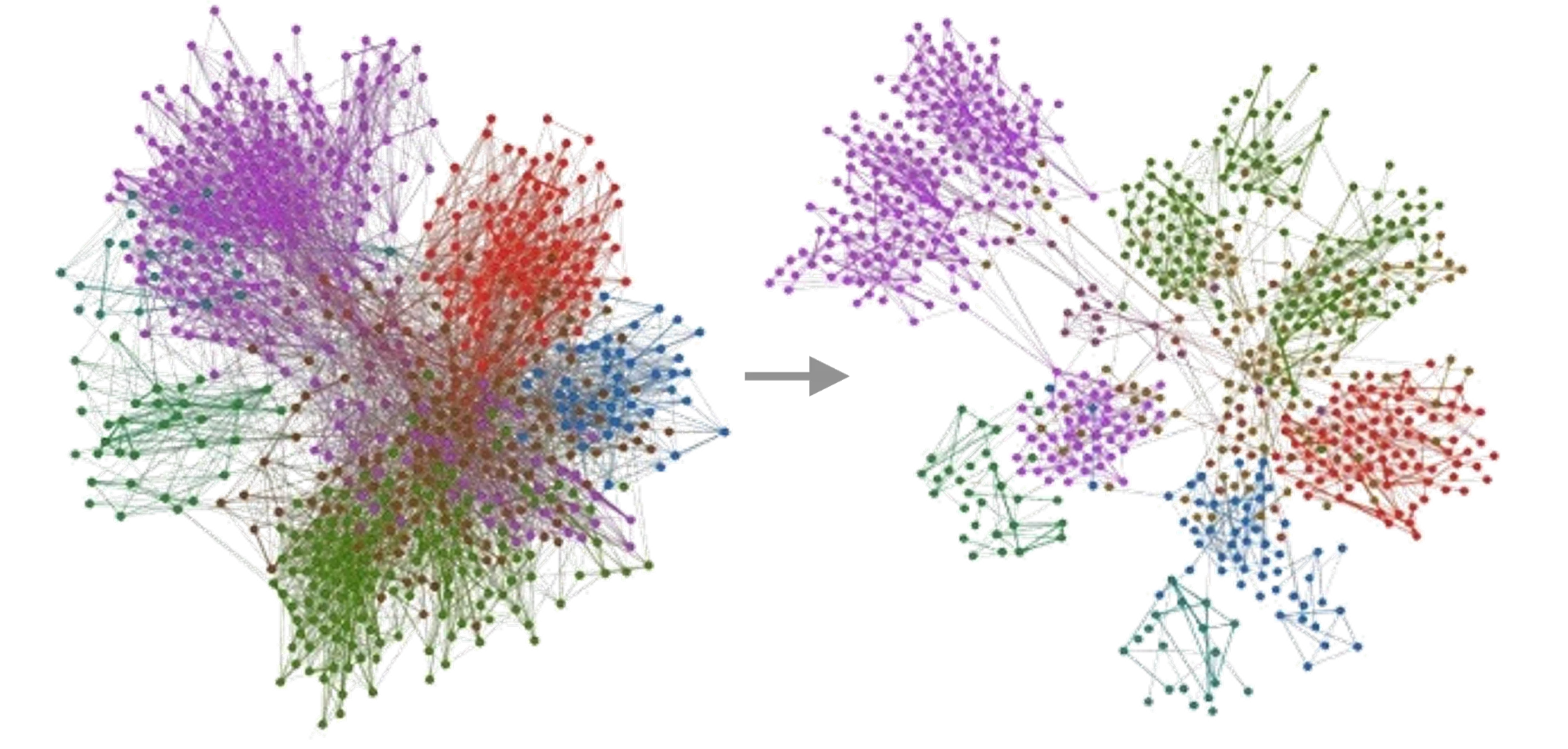
Source: Arena, M. (2022) The Neighborhood Effect: Implications of Hybrid Work.
The manager who is unable to adjust their thinking will see the resulting feelings of detachment, decreased knowledge sharing, poor communication, and reduced speed of task execution of the Neighbourhood Effect and most likely advocate for things to go back to the way they were, effectively keeping your organisation from ever-evolving along with the world around it. The manager who is able to adjust their thinking, however, might instead look at these trends and realise that we can’t simply change one aspect of the way we work and expect it to work flawlessly, and that more work is needed to embrace organisational evolutions that are in harmony with social, political and environmental changes.
Now, finally, my point. Executive coaches often refer to themselves as “thinking partners”. I’m not one for cutesy names for complex phenomena, but this one resonates, especially in the context of the challenges presented by the Future of Work. While I could not find the exact origin of this expression, I can tell you that renowned author and coach, Nancy Kline, has developed a structured approach to coaching known as the “Thinking Environment”, characterised by active listening, open-mindedness and authentic feedback; and in this environment, she refers to the coach and coachee relationship as a “Thinking Partnership”. This methodology emphasises creating an environment conducive to thinking, based on elements such as attention, equality, ease, appreciation, encouragement, feelings, information, diversity, and my personal favourite, incisive questions. In such a thinking partnership, the coach's attention is on the content of what the coachee is saying, their own response to it, and on the creation of the thinking environment for the coachee. As the nature of work continues to evolve, this type of thinking partnership can become a critical tool for managers.
As the nature of work continues to evolve, this type of thinking partnership can become a critical tool for managers.
Engaging with a thinking partner can help them reframe their perspectives, challenge assumptions, and adapt their decision-making strategies to thrive in the future of work. So let’s try this “thinking partner in the new world of work” thing out, shall we?
Decentralisation of work:
Old thinking: How do I maintain control and oversight if my team is spread out geographically?
New thinking: If I don’t assume that people need to be managed for the work to get done, how would I promote self-governance and accountability?
Automation:
Old thinking: How much money can I save by replacing people with automation technology?
New thinking: How can I liberate my people with process automation, so that they have more time to collaborate to solve problems?
Data-driven decision-making:
Old thinking: How can I use performance data to get the most out of my people?
New thinking: What assumptions about how we collect and present data might be promoting certain perspectives while silencing others?
Upskilling and reskilling:
Old thinking: Is my team's current skill set sufficient to handle our workload?
New thinking: If you didn't believe that your team’s current skills will become obsolete, what might be the next step to facilitate their lifelong learning?
Well-being at work:
Old thinking: How can I make sure my employees have a work-life balance?
New thinking: If I don’t assume that work and a personal life are mutually exclusive, how might I structure work differently?
Diversity, Equity, and Inclusion (DEI):
Old thinking: How can I meet diversity quotas to avoid penalties or negative publicity?
New thinking: If I thought that DEI initiatives are about more than compliance or “being nice”, what actions could I take today to promote diversity, equity, and inclusion?
Environmental sustainability:
Old thinking: Can I afford to invest in sustainability initiatives given our current budget constraints?
New thinking: If I didn’t see my organisation as separate from the environment, how might I change my business practices?
Employee activism:
Old thinking: How can I ensure that employees keep their personal beliefs and activism out of the workplace?
New thinking: If I didn’t think that you can separate the employee from their political views, how might I encourage constructive dialogue?
Virtual reality (VR) and augmented reality (AR):
Old thinking: Is it worth investing in VR and AR given their current niche status?
New thinking: If I knew that VR and AR will become the norm, like email, or more recently, virtual meetings, how would I integrate it into my current work processes?
Think about it, when was the last time you took a moment to really challenge they way you think about these important issues? Do these “new thinking” questions make you uncomfortable or excited? Still on the fence? Let me hit it home for you: According to the International Coaching Federation (ICF), 86% of organisations saw a return on investment on their coaching engagements, and 96% of those who had an executive coach said they would repeat the process again. While coaching is definitely not a magic wand for any and all business challenges, looking specifically at elements of the Future of Work, coaching has been found to reduce poor work-related mental health by 38%, and over 70% of managers report coaching as aiding in improving their relationships, communication skills, interpersonal skills, work performance, and work-life balance. Executive coaching has also been shown to not only benefit those currently in leadership roles, but also those who are transitioning into new roles, or preparing for future roles.
So, here's my not-so-subtle call to action (I’ve been called many things, but subtle has never been one of them): You can keep clinging to your ‘tried and true’ ways of thinking, and hope your organisation doesn't join the dinosaur club. Or, you can join the ranks of evolved thinkers, the ones who know that our future isn’t in the things we have, but in the thoughts we think. As your friendly neighbourhood coach, I’m here, waiting to help you challenge your assumptions and navigate this wild Future of Work. But remember, the choice is yours. You're the master of your future, and the keeper of your thought patterns - no pressure.
Like this project
Posted Nov 1, 2023
LinkedIn article on coaching in the future of work.
Likes
0
Views
7


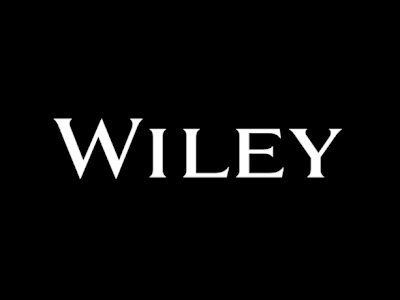

![[💡10] How to avoid the Four Horsemen of the Future of Work](https://media.contra.com/image/upload/w_400,q_auto:good,c_fill/vmqnxglnzkp0ifi0rhn0.avif)